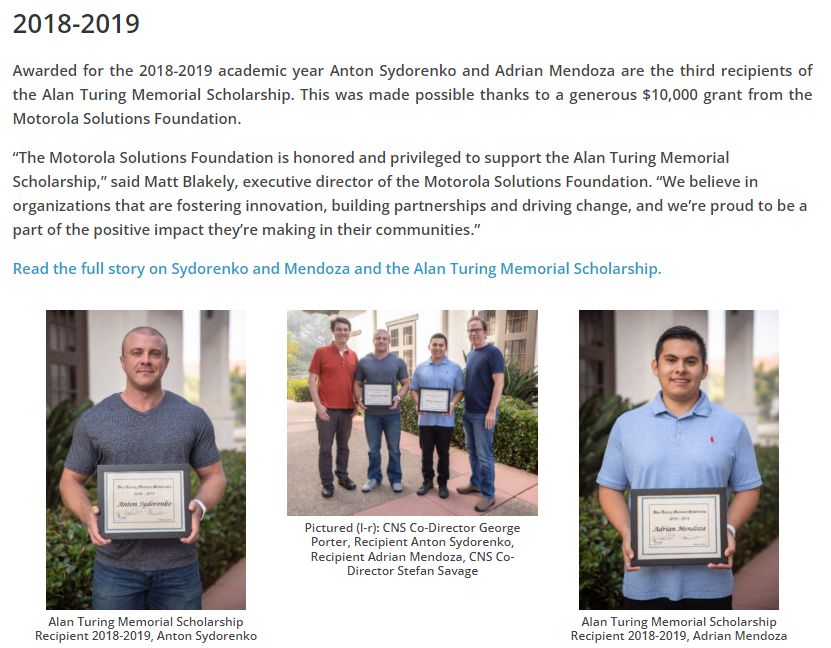If you source diversity candidates, without a doubt you are familiar with the Grace Hopper Celebration. If not, the Grace Hopper Celebration (GHC) is an annual event that celebrates women in computing and technology. Named after the pioneering computer scientist Grace Hopper, the event is organized by AnitaB.org in collaboration with the Association for Computing Machinery (ACM). The Grace Hopper Celebration is more than just a conference; it is a movement that seeks to change the face of technology by recognizing and amplifying the voices of women in the industry.
When I read this, or rather reflect on it as I’ve known about this event for ages, I am wondering what other diverse groups I could target by focusing on other luminaries who happen to be people of color. Let’s try an experiment.
- Step one: Research tech luminaries with an ethnic background.
- Step two: Research events, programs, or scholarships that honor them.
- Step three: Research related participants.
Make sense? Here is an example of how that can work.
Alan Turing was a mathematician and cryptanalyst who co-founded the field of computer science. During World War II, Turing devised the techniques that led to breaking codes produced by Germany’s Enigma machine—a breakthrough credited with accelerating the Allied victory by more than a year. After the war, he was persecuted for being gay. He took his life in 1954. For more insight on this scientist, check out the movie – The Imitation Game.
When I search “alan turing” scholarship, I see that the very first result points to the Alan Turing Memorial Scholarships. It is explained this way, “The scholarship is for enrolled UC San Diego undergraduates who actively support the LGBTQIA+ community and major in computer science, computer engineering, public policy, communications, or other programs that touch on networked systems. In addition to receiving a scholarship, recipients have an opportunity to carry out guided research under the direction of one of the center’s faculty mentors.”
Actively supporting the gay community is by no means an indicator of sexual preference but at the least, they would likely be a good referral source when targeting computer science majors in that demographic. Scrolling down the scholarship page I see the names and faces of multiple awardees over the past few years. Hmm… I wonder how many of them can be found on LinkedIn?

If you are intrigued by this type of approach, here are a few more names to research.
- Anita Borg: Advocate for women in tech; founded the Institute for Women and Technology.
- Richard Tapia: Hispanic advocate for diversity; promotes inclusion in computing through the Tapia Conference.
- Evelyn Boyd Granville: One of the first African American women with a Ph.D. in mathematics; influential in math and computer science.
- Marian Croak: African American engineer; pioneering contributions to Voice over IP (VoIP) technology.
- Mark Dean: African American inventor; co-developed the IBM personal computer.
- Ellen Ochoa: The first Latina astronaut and former director of the Johnson Space Center; influential in aerospace engineering and robotics.
- Luis von Ahn: Guatemalan-American computer scientist; co-founder of CAPTCHA and Duolingo, significant contributions to human computation and education technology.
- Lydia Villa-Komaroff: Mexican-American molecular and cellular biologist; known for her work in recombinant DNA technology and insulin production.
- Fei-Fei Li: Chinese-American computer scientist; pioneer in artificial intelligence and computer vision, co-director of the Stanford Human-Centered AI Institute.
- Yoichiro Nambu: Japanese-American physicist; awarded the Nobel Prize in Physics for his work on the theory of spontaneous symmetry breaking in subatomic physics.
- Shuji Nakamura: Japanese-born American engineer; awarded the Nobel Prize in Physics for the invention of efficient blue LEDs, which revolutionized lighting and displays.
- Dado Banatao: Filipino-American engineer and entrepreneur; known for developing the first single-chip 16-bit microprocessor-based calculator and for his work in the semiconductor industry.
- Josefino Comiso: Filipino physicist; known for his contributions to the study of polar sea ice and climate change using satellite data.
- Angel Alcala: Filipino biologist; recognized for his work in marine biodiversity and conservation, particularly the establishment of marine protected areas in the Philippines.
Happy hunting!
Jim Stroud
